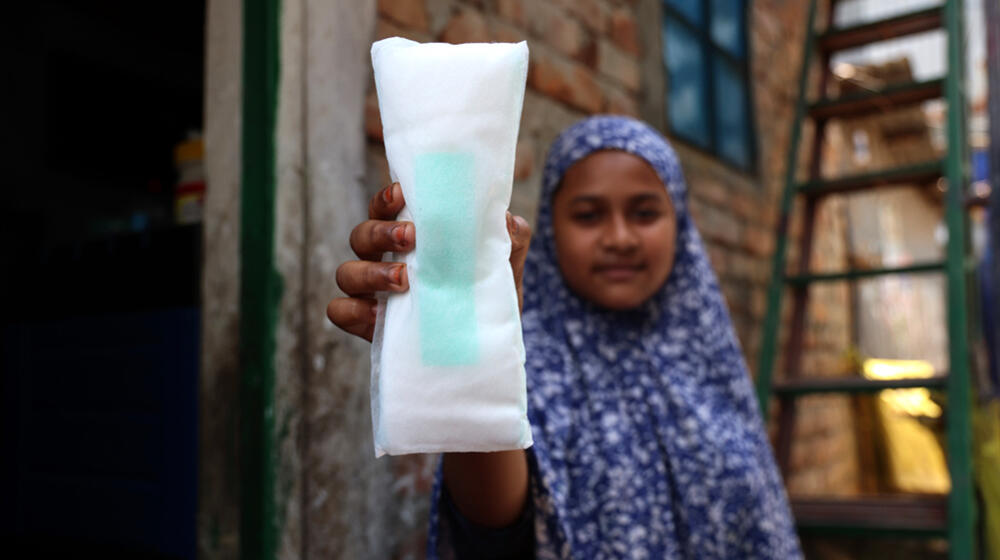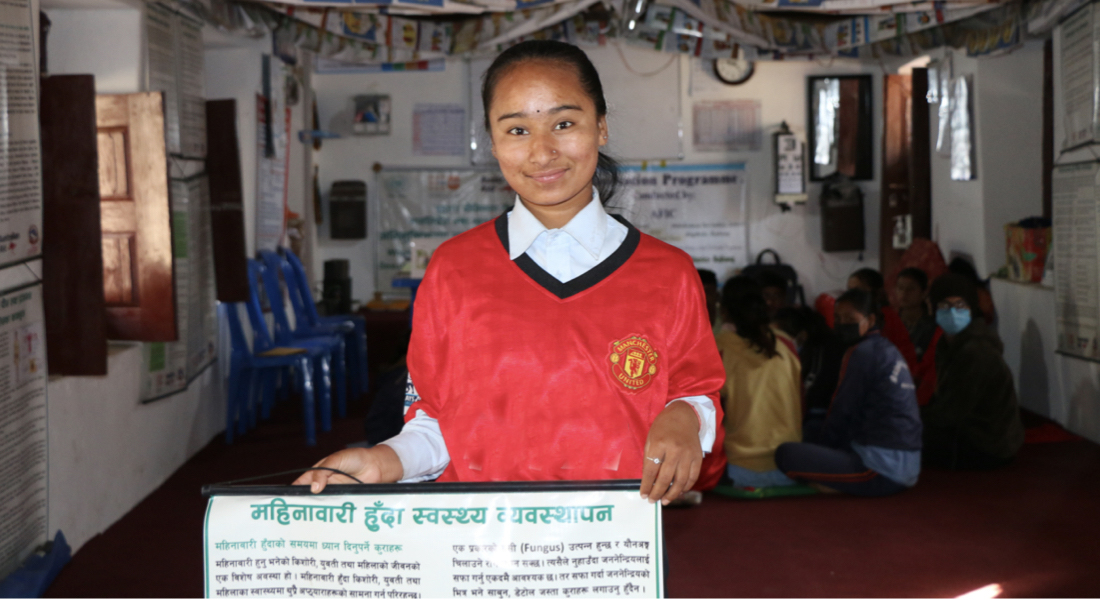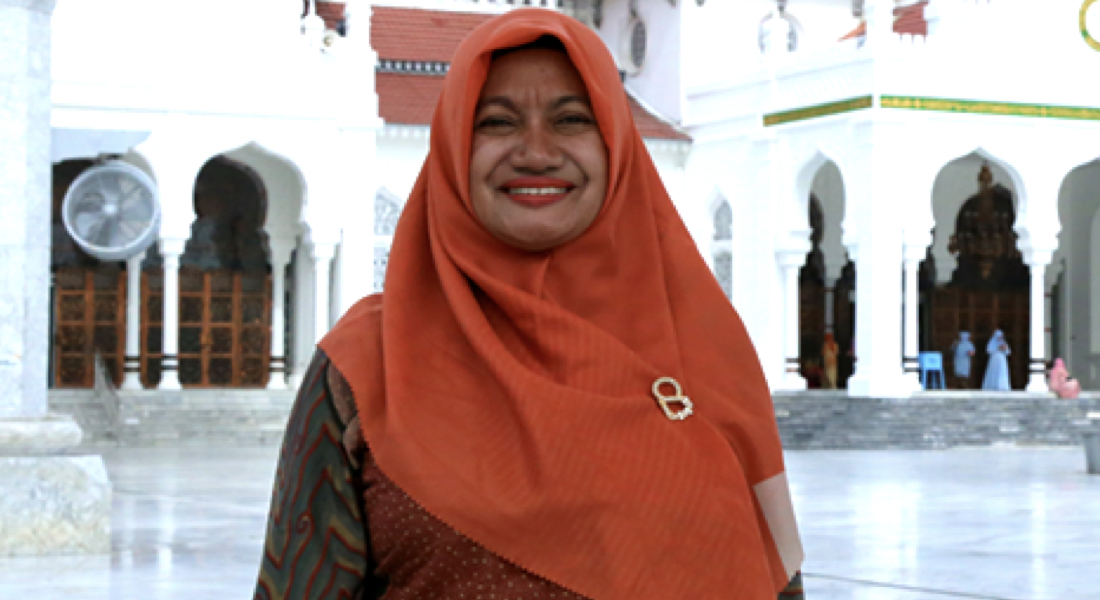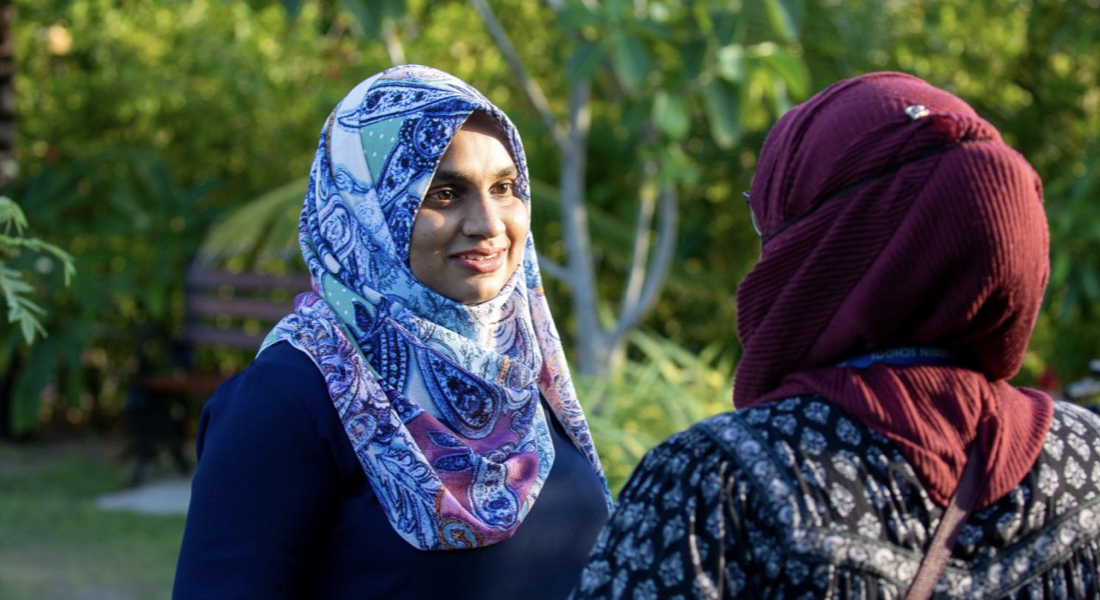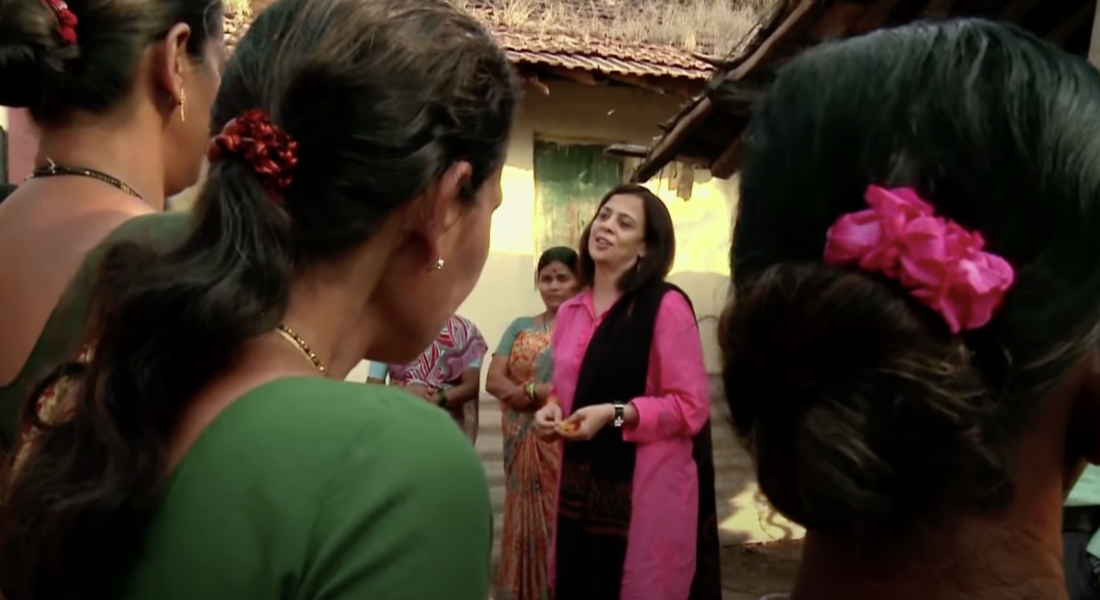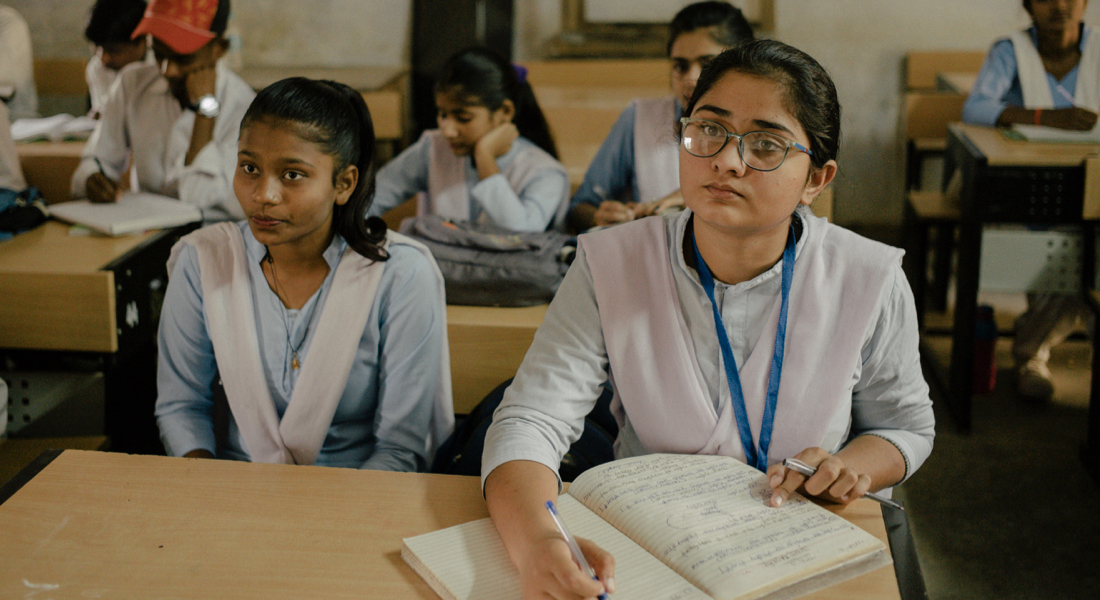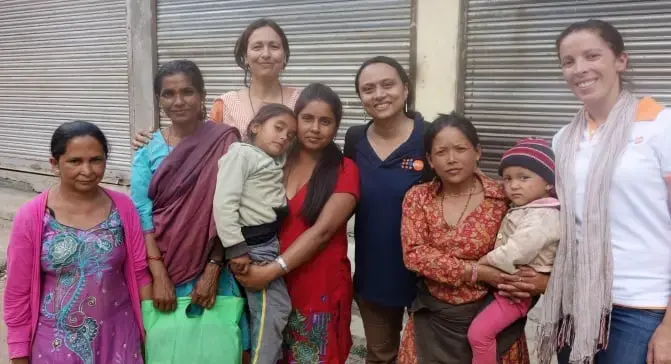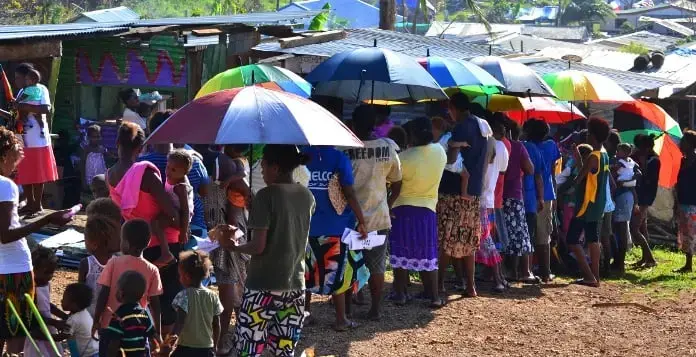Asia and the Pacific is especially vulnerable to frequent climate-related disasters, with droughts, floods and extreme storms that devastate critical infrastructure. In disaster responses across the region, menstrual health and hygiene is under-resourced and often stigmatised, with dire consequences for the health of women and girls.
In emergency situations, the lack of access to basic menstrual supplies like menstrual pads or tampons can lead to a range of health problems including urinary tract infections and toxic shock syndrome. From the flooded fields of Pakistan to the cyclone ravaged islands of Vanuatu, women struggle to manage their menstruation safely, comfortably and with dignity.
This collection of photos and stories celebrates some of the frontline heroes advancing the discussion of menstrual health, sexual and reproductive health, and gender equality in their communities.
Nepal: Rabina Dham is a member of the Adolescent Friendly Information Corner at Bhairav Secondary School. The Information Corner is an intervention of the Ministry of Education, Science and Technology and UNFPA, to provide comprehensive health and rights information, services and referral for young people in a non-judgmental and gender-sensitive manner. Rabina became part of the group in 2017, then she became a peer educator. She carries out outreach activities in her community to advocate for an end to domestic violence, child marriage, discrimination and untouchability based on caste and during menstruation.
“It was through the information corner that I learned that it is okay to drink milk and eat yoghurt when I am on my period,” Dham says. The practice of Chhaupadi in western Nepal does not permit consumption of milk or milk products during menstruation in the fear that the cows will stop producing milk or die. “Earlier, women were banished to animal sheds during their period but now that practice is disappearing and we stay inside our houses.”
Dham says it was not easy to convince her parents and grandparents to let her eat nutritious food when she was on her period. “I was learning in school that it is necessary to eat well and be rested, but the opposite was happening at home.” The information corners have been successful in breaking down social and cultural barriers and creating a safe and supportive environment for young adolescents to access information on components of comprehensive sexuality education, such as sexual and reproductive health, including menstrual health. ©UNFPA Nepal/Kenosha Kumaresan READ MORE
“Women were banished to animal sheds during their period, but now that practice is disappearing.”
-Rabina Dham, Nepal
Indonesia: “Students with intellectual disabilities have the same rights as us,” Nurlinawati says. ‘Lina’ is a teacher at the State Special Needs School in Aceh province. “There’s no difference, be it access to education, the right to reproductive health education, the right to marry, or other rights: they’re the same. Providing learning on menstruation will improve their capacity not only for the time being, and not only for their family, but also for their own future.”
Lina took part in a UNFPA-supported project on adolescent sexual and reproductive health education for special needs school teachers. “Sometimes students would feel ashamed, because they didn’t know how to wear menstrual pads correctly,” she says. “After reading some references, I had the idea to make a ‘sister’ doll. By using these tools, students wanted to know more. We showed students how to fit the menstrual pad correctly in their underwear using the doll, until students are capable of using it on their own.” ©UNFPA Indonesia/Lucky Putra READ MORE VIDEO
“Sometimes students would feel ashamed, because they didn’t know how to wear menstrual pads correctly."
-Nurlinawati, Indonnesia
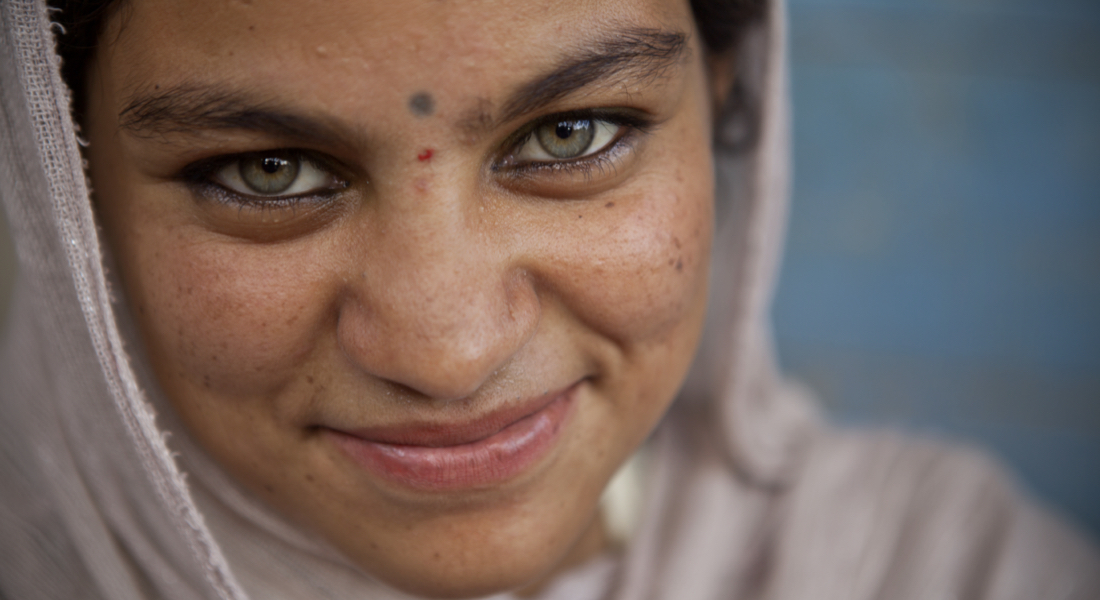
WATCH THE VIDEO 'MENSTRUATION MATTERS'
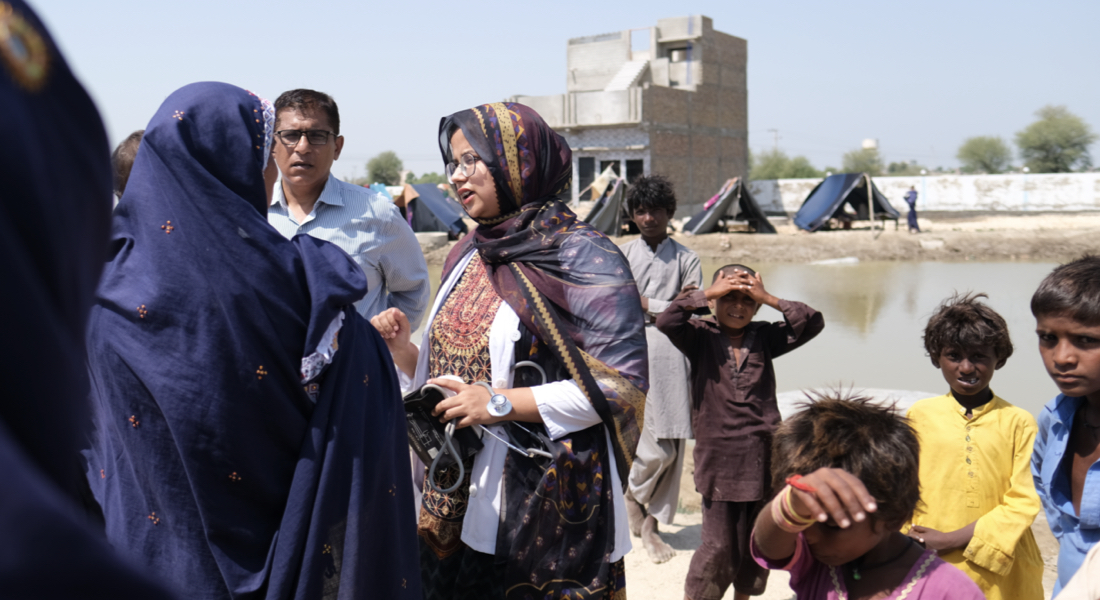
Pakistan: “Women don’t have proper washing facilities or latrines,” Dr. Kanwal Ijaz says. “If you talk to girls and menstrual health, they are not able to manage it well due to the conditions in the camp. Allergies and rashes are common because women use simple cloths and then use the stagnant water to clean that cloth. There’s no privacy, because the latrines are not separated”
Dr. Kanwal Ijaz is a medical officer and research specialist providing medical screening at camps in Sanghar following the devastating floods in 2022. She says problems have not gone away since the floods, but rather problems are only increasing. At first women were not coming forward to talk about their problems. “They didn’t want to talk about it. Now when I come to the camp, they come to me. They need separate toilets, they need sanitary pads and information about menstrual heath and hygiene.” ©UNFPA/Kurokawa READ MORE
“If you talk to girls and menstrual health, they are not able to manage it well due to the conditions in the camp. Allergies and rashes are common because women use simple cloths and then use the stagnant water to clean that cloth."
-Dr. Kanwal Ijaz, Pakistan
Maldives: Hamsha Hussain is climate advocate and co-founder of Zero Waste Maldives, a non-government organisation promoting a ‘Zero Waste Low Impact Lifestyle in the Maldives’ with a vision to eliminate waste through education and awareness, and provision of alternatives as well as ‘waste to wealth’ programmes. Hamsha partnered with UNFPA on a pilot that links waste reduction and climate action to female menstrual health – the Cupvert Project. This project has opened up a platform to raise awareness on issues and introduce sustainable solutions to meet the demands of women and girls. ©Hamsha Hussain READ MORE
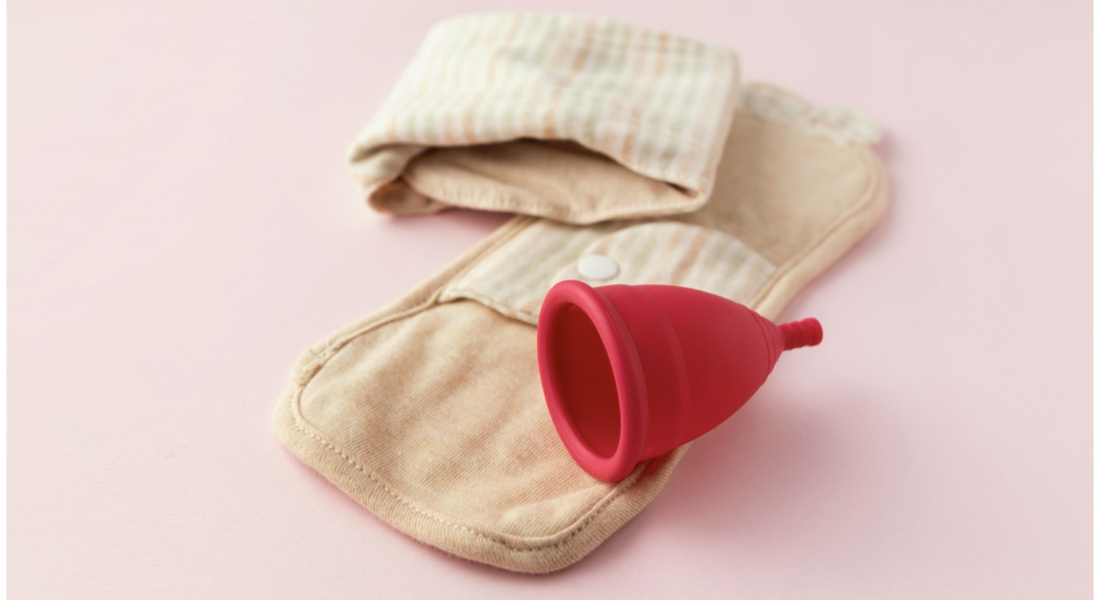
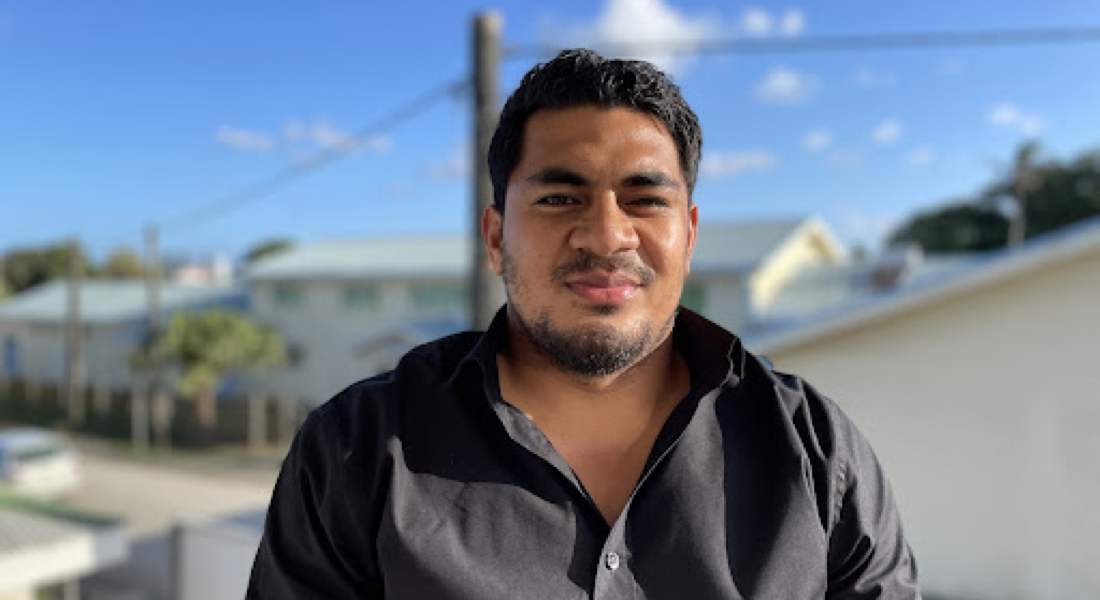
Tonga: When the Hunga-Tonga-Hunga-Ha’apai volcano erupted in January 2022, a tsunami destroyed basic infrastructure on many low-laying islands and atolls. Dr. Patrick Penitai was the only doctor on the island of Siesia-Nukunukumotu, one of the places most badly impacted by the disaster. “There was a serious lack of water for women to provide for the rest of the family,” he recalls. “With women’s menstrual issues, it didn’t feel like they were accessing proper hygiene when undergoing menses.” Dr Patrick is Chief Medical Officer for ‘Eua, Ministry of Health, and he was on-call to support the Women and Girl Friendly Space teams that hosted sessions for women and girls to talk about their post tsunami challenges. Through focused sessions, women's health workers and gender-based violence specialists distributed dignity kits with menstrual supplies. UNFPA Pacific has developed the Menstrual Hygiene Management Kit to help adolescent girls manage their menstruation safely and with dignity even during and after emergencies. WATCH THE VIDEO to see what’s in the kit! ©UNFPA Pacific
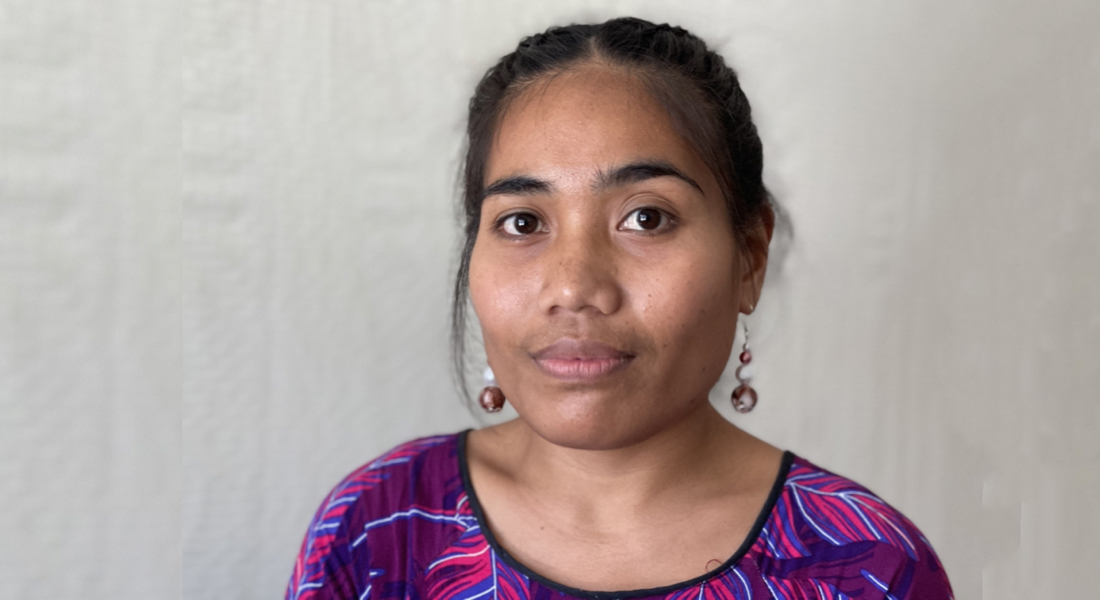
Kiribati: Tematong Kamarie leads a peer-to-peer awareness programme to prevent unintended teenage pregnancies in Kiribati. Through discreet one-on-one chats, Tematong helps girls discuss taboo subjects like menstruation and reproductive health and rights. She helps girls access essential supplies in a conservative cultural context where many religious leaders condemn birth control. ©UNFPA/Rose READ MORE
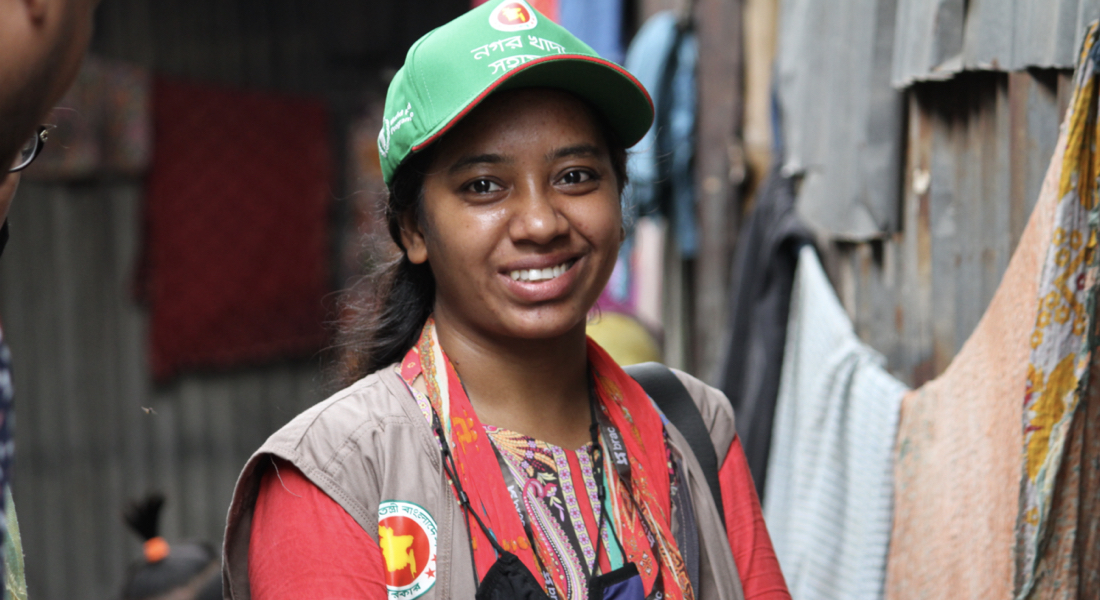
Bangladesh: Kulsum Akter is a community engagement officer who works with UNFPA’s partner BRAC in Dhaka. She works on a project to deliver food, menstrual supplies and information through community shops in informal settlements. Each month, women and adolescent girls redeem packets of disposable menstrual pads and food items from a shop near their home. The project mixes a cash and voucher model with a local grocery purchase to empower women and girls with choices when it comes to their menstrual health. ©UNFPA Bangladesh/ Ferdous Alka READ MORE
"When girls don’t have facilities in schools, they can’t change their pads or cloths. As a result girls are in over-soaked wet cloths or pads all day, they are unable to concentrate."
India: "When girls don’t have facilities in schools, they can’t change their pads or cloths,” says Archana Padkar. “As a result girls are in over-soaked wet cloths or pads all day, they are unable to concentrate. Sometimes it's so bad they just leave to go home, missing school.” Archana is with the UN's Water Supply and Sanitation Collaborative Council which is working with the Indian government to change the curriculum in India, and change the future for girls. VIDEO
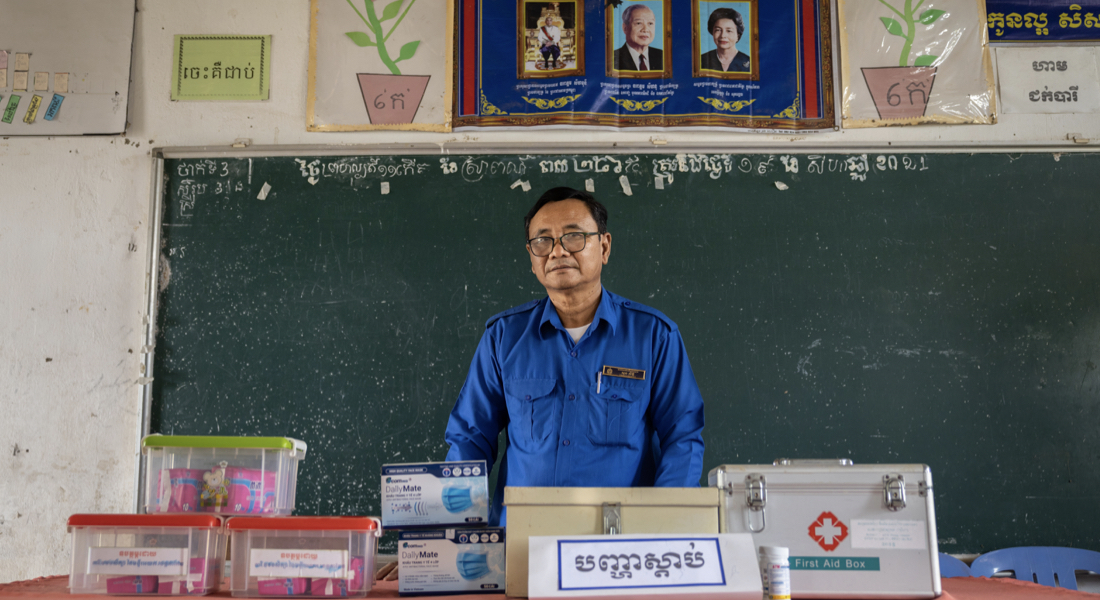
Cambodia: Mr Suong Sethy is Director of Ang Run Primary school. He makes sure that all the necessary supplies are on hand in the school’s health room, for emergencies. Sanitary pads are one of the essential items for menstrual hygiene in his school. Tramkok district is one of three pilot districts to have received refresher training on the Minimum Requirements on WASH in schools. These requirements evaluate a school’s drinking water supply, the ratio of latrines to students separated by gender, and the presence of menstrual health and hygiene facilities, supplies and education. ©UN0620259/Bunsak But
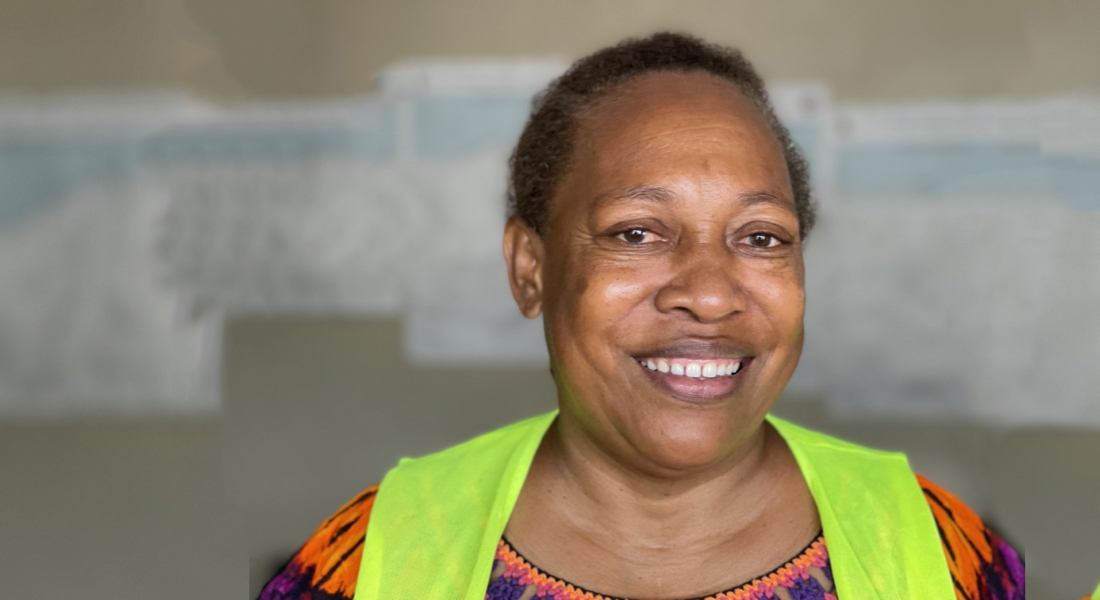
Solomon Islands: Moreen Sariki is part of a women’s collective called Markets for Change. She says the Honiara market used to be a dangerous and chaotic place without designated areas. Fish vendors were competing with fruit vendors for space, and fights often broke out. Moreen helped found Markets for Change, so that women would have an organised voice in negotiating with the council that manages the market. Through this collective, they have fought for better sanitation and hygiene systems, including separate toilets for men and women. She says prior to their advocacy, women at the market with their periods were without facilities and faced embarrassing difficulties. ©UN Women/Rose READ MORE
"These aren’t topics that one should be coy about addressing or discussing. It is an important aspect of a person’s health.”
-Divya Chaudhry, India
India: “I’m passionate about health, and have an in-depth understanding of family planning and sexual and reproductive health, because of my mother’s teaching and sensitising us on these issues,” says Divya Chaudhry. “These aren’t topics that one should be coy about addressing or discussing. It is an important aspect of a person’s health.” In her final year of school, Divya is at the top of her class, and holds a leadership role in a UNFPA-supported youth health project. ©UNFPA/Nanna Heitman READ MORE
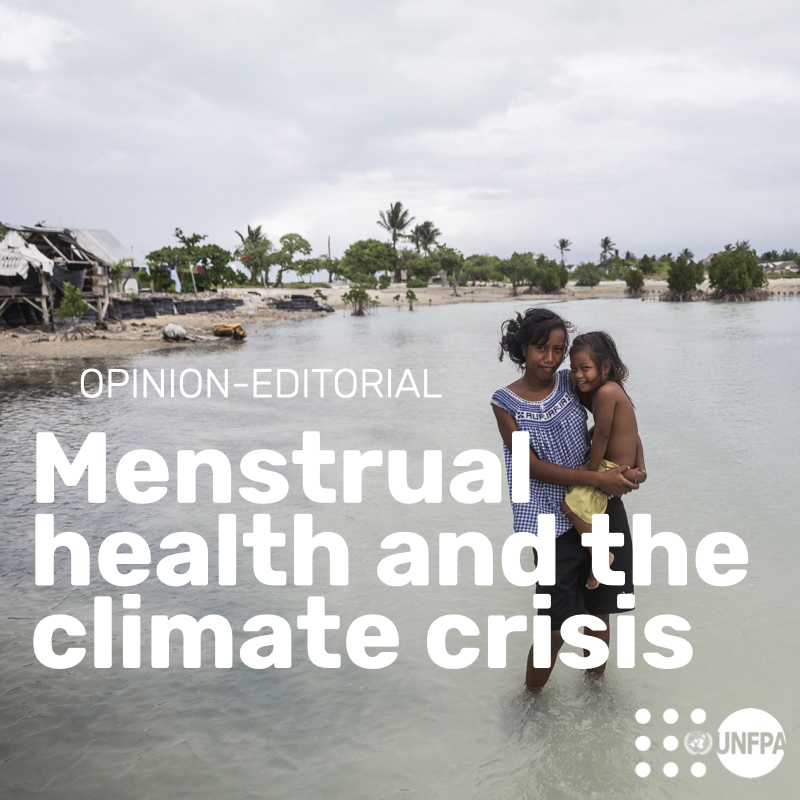
Learn More
Menstrual Health Waste Management: Understanding the Menstruator
Menstrual Waste Management Series: Emerging Solutions
Climate change and health supply chains
Menstrual hygiene management (MHM) in emergencies toolkit
Menstruation in a Global Context: Addressing Policy and Practice
Religion, Menstruation, and Refugee Realities: Insights from Rohingya Girls and Women
Period products: How menstruation is managed around the world
The Health Crisis That No One Wants To Talk About
Menstrual Health and Hygiene Management for Persons with Disabilities
What are the cultural stigmas towards menstruation?
Period. End of Sentence. | FULL FEATURE

